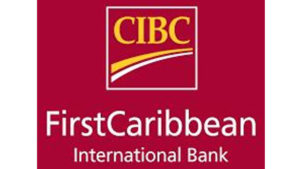 Just days after the Trinidad-based Republic Bank took over the operations of the Bank of Nova Scotia in St. Kitts and several other countries in the region, another Canadian bank has reportedly sold its Caribbean operations, including its branches in St. Kitts and Nevis.
Just days after the Trinidad-based Republic Bank took over the operations of the Bank of Nova Scotia in St. Kitts and several other countries in the region, another Canadian bank has reportedly sold its Caribbean operations, including its branches in St. Kitts and Nevis.
FirstCaribbean is a Caribbean subsidiary of the Canadian Imperial Bank of Commerce (CIBC) and operates two branches in the federation, one in St. Kitts and one on Nevis.
Media reports in several territories indicate that CIBC FirstCaribbean International Bank has been acquired by The Gilinksi Group out of Colombia. This acquisition includes locations in 16 Caribbean markets including the Barbados headquarters and branches in the Eastern Caribbean.
The Gilinksi Group is owned by Colombian Billionaire, Jaime Gilinski Bacal, head of one of the largest banking empires in Latin America.
FirstCaribbean bank says it has over 2,700 staff, and 57 full service branches in its 16 regional markets.
It was reported since 2018 that CIBC was selling its shares in the regional operations, an official with the Barbados-based subsidiary indicated that FirstCaribbean would continue its Caribbean operations.
While neither the Gilinski Group nor FirstCaribbean has made any public statement, Freedom FM has confirmed with banking authorities that FirstCaribbean is expected to make an official announcement on the matter this week.
Some financial pundits are of the view that the “de-risking” of global banks from the Caribbean has become a “new normal” in terms of Caribbean finance and could represent further economic challenges in the region, especially when it comes to access to international finance.
From the perspective of international banks, mainly from Canada, the United States, and Europe, as well as international regulatory agencies, the Caribbean is considered high risk due to perceived weaker compliance and Anti-money laundering regimes.
As a result the international banks are pulling out of the region to avoid being stung by financial fraud, paying large fines, and suffering from reputational risk.
